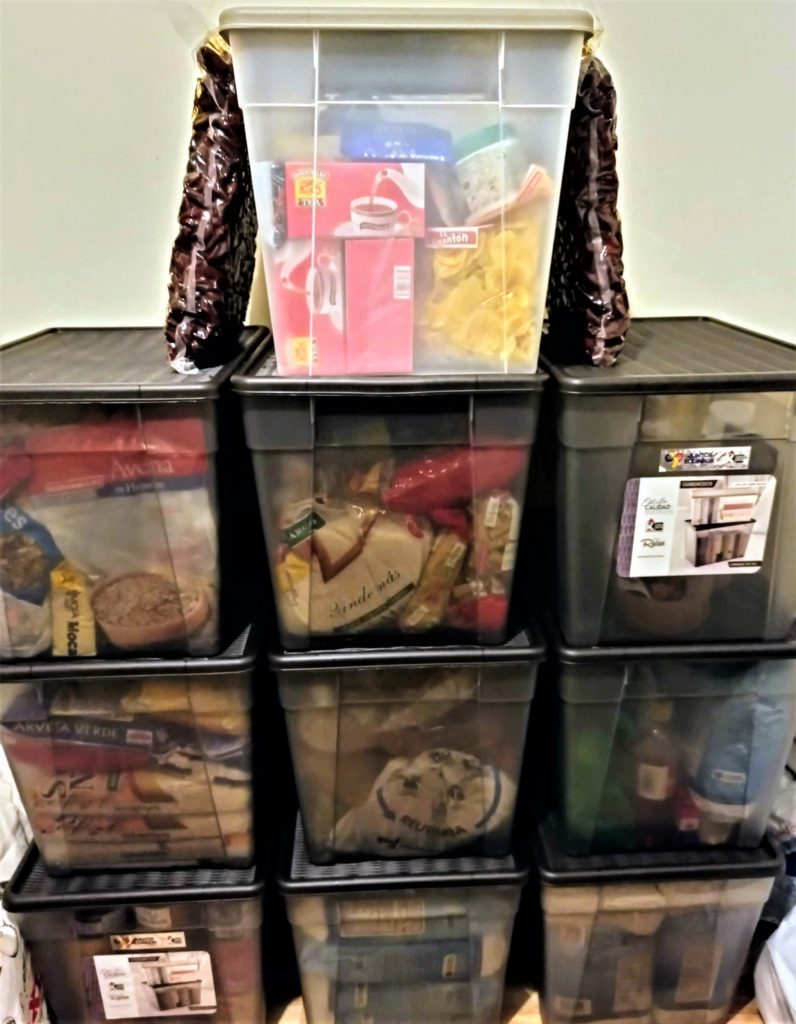In the event of political unrest, earthquakes, hurricanes or a medical crisis such as a pandemic or epidemic. We learned to prepare better.
2020 taught us to be prepared for the less anticipated event.
This video explains why do you need to be a Prepper: https://youtu.be/NnuoKfGNQL0
In this article we try to educate you about the Preparedness that every person should have. Please note that it is impossible to list everything in detail, so this list is actually general advice. But if you do, you are on the safe side.

The question we are trying to answer is:
what should I have if an emergency event affects me and my family?
We are going to divide the answer into the following parts:
1- Knowledge
The most valuable asset in any crisis is knowledge. Firstly, because knowledge makes you independent and uncontrollable. And secondly, with knowledge you can overcome any deficiency in the other areas (tools and supplies). At the very least, you should read tutorials or watch how to do things, even if you’ve never tried that before.
- Learn how to cook anything from baking bread to more complex stuff
- Learn how to make the basic ingredients like flour, sourdough, cheese, yogurt, yogurt bacteria culture, and even honey
- Learn how to use tools
- Learn how to fix tools
- Learn how to make tools
- Learn how to make candles
- Learn how to sew
- Learn more about your body health and anatomy
- Learn how to use natural sources
- Learn how to store natural sources
- Learn more about farming and gardening
- Learn more about science (biology, physics, electricity, electronics and mechanics, etc.)
- Learn languages
2- Tools
Being able to do things is important and it requires good quality tools.
- Medications and First Aid Kit.
- Cash (coins and banknotes of 5 and 10 dollar)
- Cooking Utensils
- Repair Kits
- Protective Gear
- Cleaning Gear
- Spare Glasses and a set of Contact Lenses if you use
- Garden Tools
- Mobility Equipment
- Energy Sources such as gas, diesel, batteries, solar, etc.
- Candles and Fire Starters
- Simple FM / AM Radio
- Simple Two-Way Communication Equipment, charged mobile phone
- Sewing Tools
- Sheets of Fabric
- Notes on Physical Analog Paper with important addresses, names, and emergency numbers
- Physical Analog Tutorials and Information Books.
- Storage Space and Equipment (cold, protected from sunlight and unauthorized access)
- Water Filter with Cleanable Filter Elements
3- Food Supplies
The information we include in this part is based on the German federal government’s official list for its citizens. But we edited it using our own experience and knowledge in Ecuador.
For vegetarians: remove meat products and double the amount of vegetarian products.
The following list is for 1 person and should be enough for min. 2 weeks and with care for 3 weeks.
- Drink Water
30l in sealed bottles, protected from sunlight - Cleaning Water
100l in water tank if available - Flour
5kg - Yeast Powder
200g - Pasta/Spaghetti
5kg - Fresh Beans and other seeds
1kg - Dehydrated or Canned Beans and other seeds
2kg - Potatoes
5kg - Fresh Vegetables
5kg - Dehydrated Vegetables
1kg - Fresh Fruits
5kg - Dehydrated Fruits
1kg - Milk Powder
500kg - Fresh eggs
20 - Egg Powder
500g - Dehydrated or Canned Fish
500g - Dehydrated or Canned Meat
1kg - Cooking Oil
1l - Frying Oil
2l - Ghee
500kg - Sugar
500g - Honey (Natural, filtered only with no heating or adding of anything, or as honeycombs)
250g - Vinegar
1l
At the end we ask you to share your thoughts and suggestions with us in order to improve this list and to share the list with everyone you know.
At El Domo, we are developing a water filter and other open-source products such as a refrigerator and oven that can help you develop your skills.
Follow our channels to stay informed.
Stay safe
